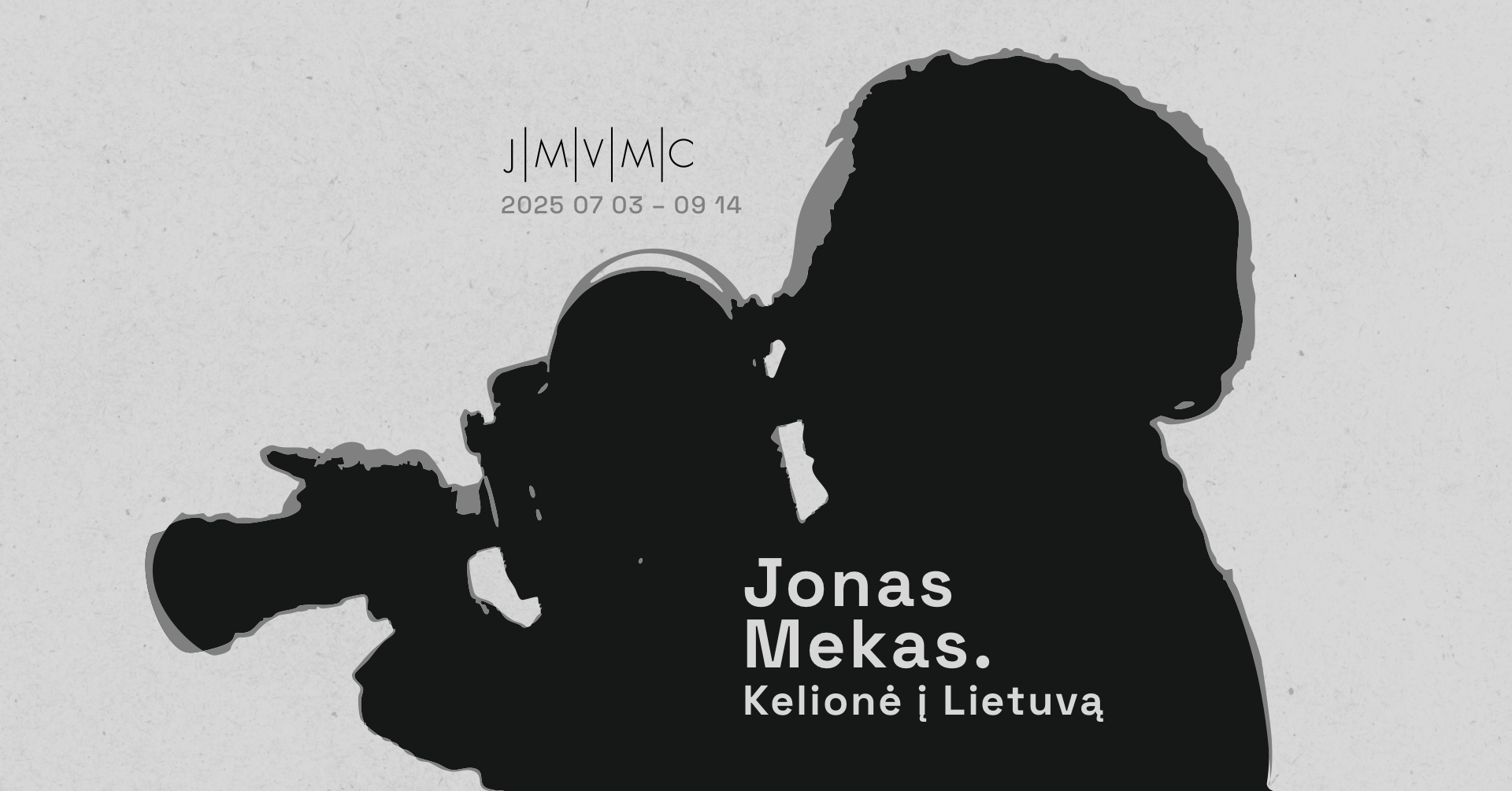
2025 07 03–09 14 Jonas Mekas | Journey to Lithuania
Jonas Mekas (1922–2019), despite the dates in parentheses, continues his journey to Lithuania. His friends and loved ones bring his stories and memories, fragments of texts, and other memorabilia. JMVAC draws egodocumentation and artifacts related to the avant-garde filmmaker like a magnet. In this new exhibition, Mekas returns through moving images, voice, and objects. The exhibition attempts to connect the visual and audio equipment he used with the footage captured by those very devices. At the same time, it is a portrait of the creative Mekas seen through the eyes of other artists. This can be visualized as a chain of images: Camera – Mekas – Film, or Mekas as both the subject and object of the film.
Visitors are greeted by Jonas Mekas’ personal items: a Bolex camera, a video camera, a tape recorder, film projectors, and the wooden chair the maestro loved to sit on. It would be inaccurate to simply call these “equipment”—they are more like extensions of Mekas himself (following Marshall McLuhan’s concept). These relics come alive: the camera seems to grow the filmmaker’s hands, familiar from photographs and film reels. We also see the image of Mekas filming, captured by Lithuanian documentarians Robertas Verba and Bytautė Pajėdienė.
Nearby is an excerpt from Jonas Mekas’ 1972 film Reminiscences of a Journey to Lithuania, depicting a visit to his birthplace, Semeniškiai. In the very first frame, we see an elderly woman in a white headscarf. “That was my mother. She was waiting. She waited for 25 years,” speaks the gentle voice of the wayward son off-screen. Mekas returned to Lithuania in 1971 not only as an avant-garde filmmaker but also as a poet. That same year, the publishing house Vaga rushed to release a book of his poetry, and the idylls of Semeniškiai nestled beautifully into the landscape of Lithuanian poetry alongside Antanas Baranauskas’ The Forest of Anykščiai. In the exhibition, we hear Mekas reading his own idylls, his voice cutting through like “an old rain’s murmur.”
Curated by Laima Kreivytė.
Visual identity – Ineta Armanavičiūtė.


